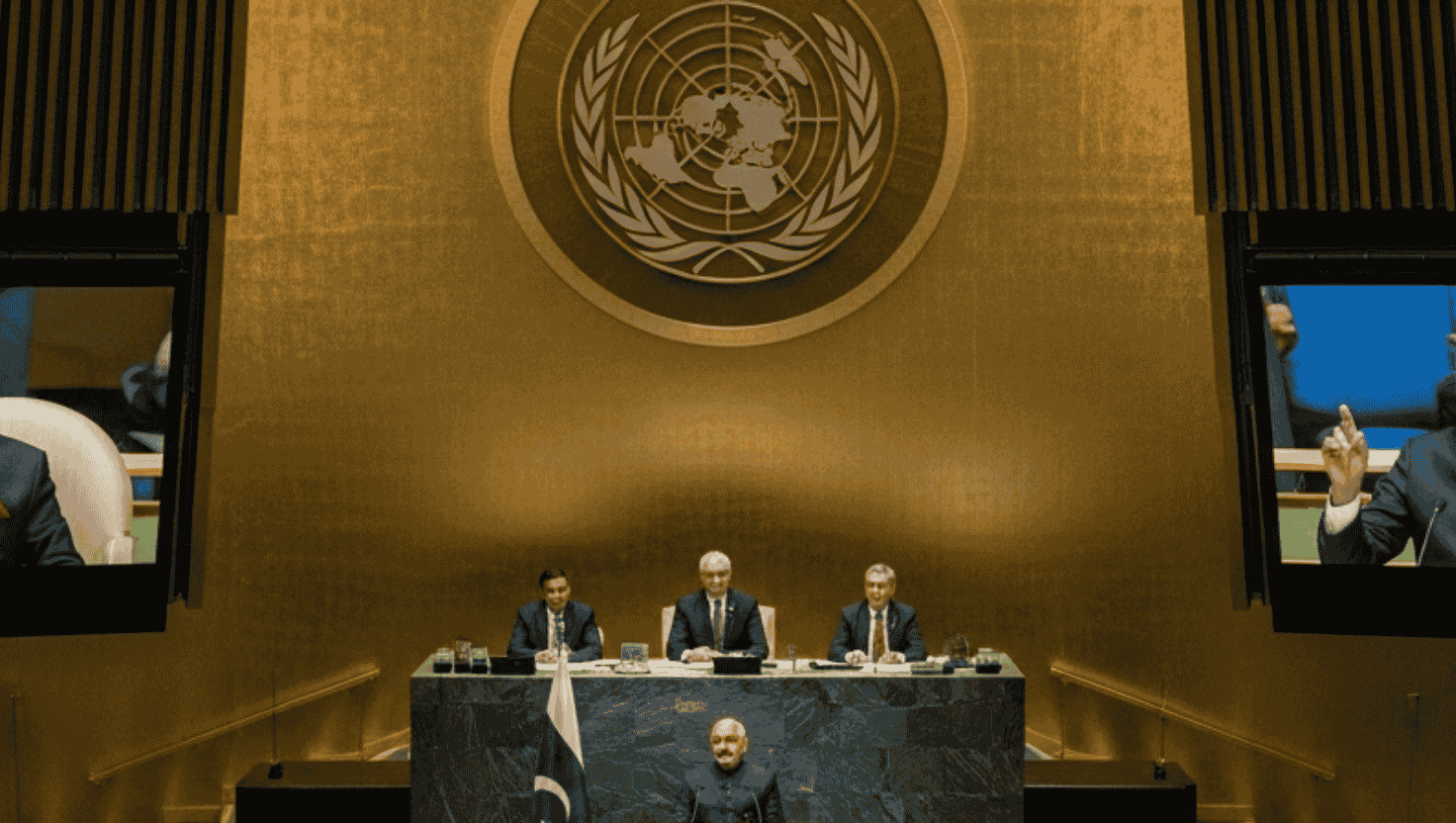In a significant diplomatic development, the prime ministers of Pakistan and India are slated to address the United Nations General Assembly on the same day for the first time since the intense May standoff that nearly escalated into a nuclear crisis in South Asia. This occurrence at the 80th UNGA session on September 26 could spotlight the deep-seated regional divides, with Pakistan positioned to respond directly to India’s viewpoints.
The provisional agenda from UN authorities indicates that Pakistan’s address follows India’s, offering a tactical edge for Islamabad to counter narratives in real time. Prime Minister Shehbaz Sharif heads Pakistan’s delegation, accompanied by key figures including Deputy Prime Minister Ishaq Dar and foreign affairs adviser Tariq Fatemi, underscoring the nation’s commitment to global discourse on peace and stability.
The 80th UNGA commences officially on September 9, with the high-level debates spanning September 23 to 29. Tradition dictates Brazil opens the proceedings, followed by the United States, where President Trump will make his inaugural speech in his second tenure. This year’s overarching theme, “Better together: 80 years and more for peace, development and human rights,” resonates amid global challenges.
On September 26, India’s leader is scheduled for the morning slot, while Pakistan shares the afternoon with representatives from Israel, China, and Bangladesh. New Delhi has confirmed its prime minister’s involvement in the debates, setting the stage for contrasting emphases.
MORE READ : India Alerts Pakistan of Major Flood Under Indus
This sequential speaking order amplifies the opportunity for Pakistan to address Kashmir as a pivotal barrier to enduring peace, development, and human rights in South Asia. A high-ranking Pakistani official emphasized, “Recent events have demonstrated the fragility of stability in our region. Achieving the UN’s vision requires a fair resolution to longstanding issues like Kashmir to prevent future escalations.”
The session unfolds against a backdrop of heightened international volatility, including the ongoing conflict in Gaza, the protracted situation in Ukraine, and the repercussions of the recent India-Pakistan military tensions. For South Asia, this platform reinforces the urgency of dialogue on flashpoints that threaten global security.
As world leaders converge, the Pakistan-India dynamic at UNGA could catalyze renewed focus on diplomacy to foster lasting regional cooperation.









